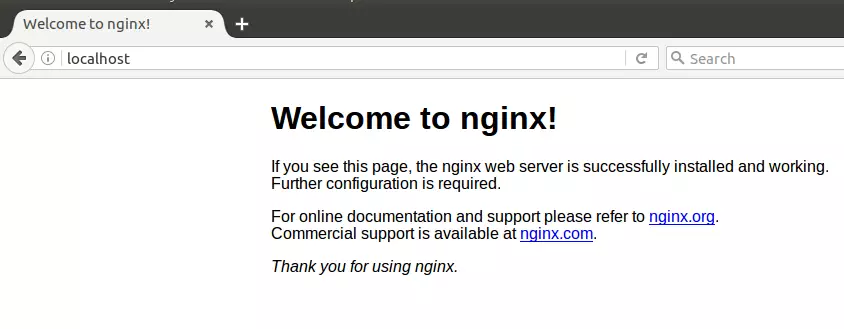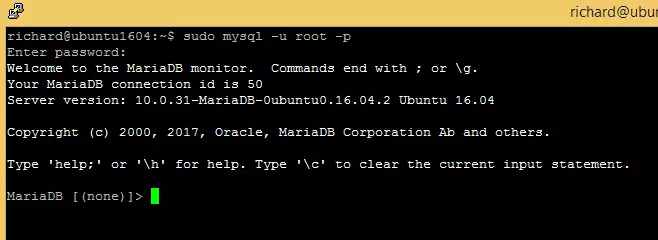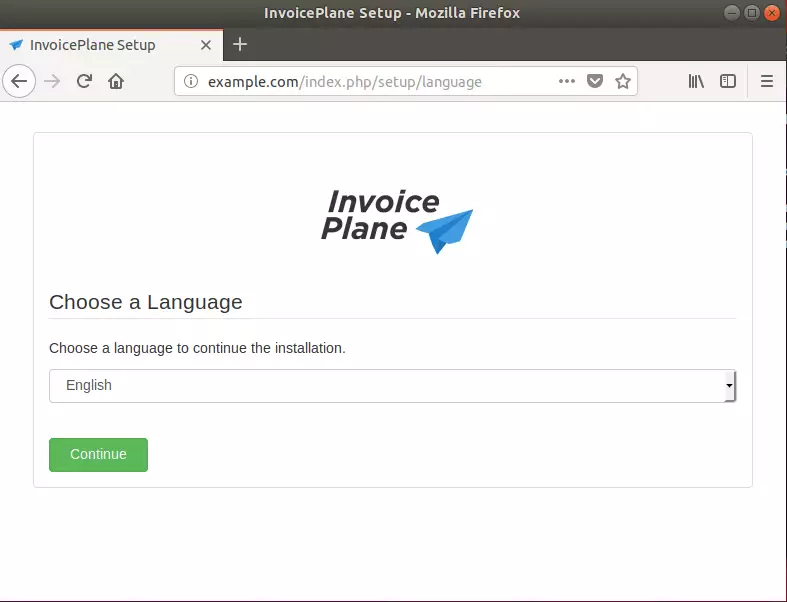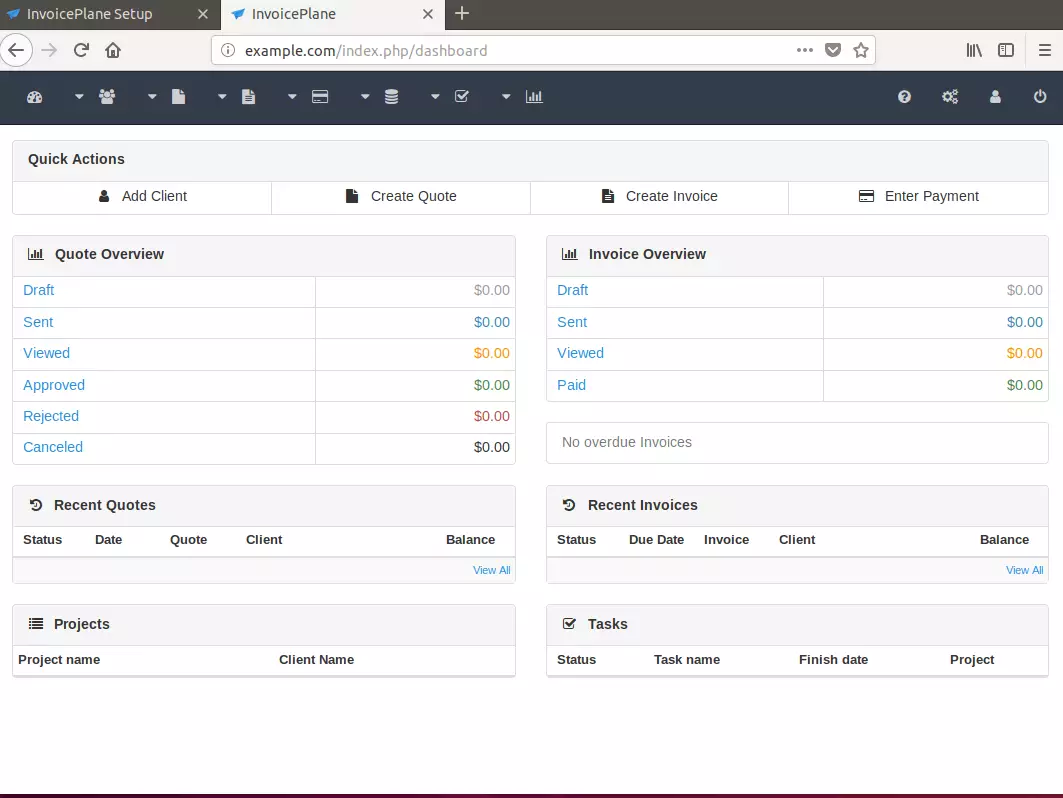Invoice Plane is an open-source online app allowing users and businesses to manage their billing cycle, from invoicing to quotes and payments. This platform is built on the LAMP or LEMP stack and can be used to provide CRM-like management for individuals and businesses.
You may find this helpful app for small or medium-sized businesses. It’s designed from the ground up for ease of use and allows business owners to create and manage their business invoices and expenses.
You may want to try Invoice if you’re looking for a robust, secure, easy-to-use invoicing and time-tracking system with a multi-language interface. This brief tutorial will show students and new users how to install Invoice Plane on Ubuntu 16.04 | 18.04 with Nginx, MariaDB, and PHP 7.1 support.
To get started with installing Invoice Plane, follow the steps below:
Install Nginx HTTP Server on Ubuntu
Nginx HTTP Server is the most popular web server in use. Install it since Invoice Plane needs it.
To install Nginx HTTP on the Ubuntu server, run the commands below.
sudo apt update sudo apt install nginx
After installing Nginx, the commands below can be used to stop, start, and enable the Nginx service to always start up with the server boots.
sudo systemctl stop nginx.service sudo systemctl start nginx.service sudo systemctl enable nginx.service
To test the Nginx setup, open your browser and browse to the server hostname or IP address, and you should see the Nginx default test page as shown below. When you see that, then Nginx is working as expected.
http://localhost

Install MariaDB Database Server
MariaDB database server is a great place to start when looking at open-source database servers for Magento. To install MariaDB run the commands below.
sudo apt-get install mariadb-server mariadb-client
After installing MariaDB, the commands below can stop, start and enable the MariaDB service to start up when the server boots.
Run these on Ubuntu 16.04 LTS
sudo systemctl stop mysql.service sudo systemctl start mysql.service sudo systemctl enable mysql.service
Run these on Ubuntu 18.04 and 18.10 LTS
sudo systemctl stop mariadb.service sudo systemctl start mariadb.service sudo systemctl enable mariadb.service
After that, run the commands below to secure the MariaDB server by creating a root password and disallowing remote root access.
sudo mysql_secure_installation
When prompted, answer the questions below by following the guide.
- Enter current password for root (enter for none): Just press the Enter
- Set root password? [Y/n]: Y
- New password: Enter password
- Re-enter new password: Repeat password
- Remove anonymous users? [Y/n]: Y
- Disallow root login remotely? [Y/n]: Y
- Remove test database and access to it? [Y/n]: Y
- Reload privilege tables now? [Y/n]: Y
Restart MariaDB server
Type the commands below to log into the MariaDB server to test if MariaDB is installed.
sudo mysql -u root -p
Then type the password you created above to sign on. If successful, you should see MariaDB welcome message.

Install PHP 7.1-FPM and Related Modules.
PHP 7.1-FPM may not be available in Ubuntu default repositories. To install it, you will have to get it from third-party repositories.
Run the commands below to add the below third party repository to upgrade to PHP 7.1-FPM
sudo apt-get install software-properties-common sudo add-apt-repository ppa:ondrej/php
Then update and upgrade to PHP 7.1-FPM
sudo apt update
Next, run the commands below to install PHP 7.2 and related modules.
sudo apt install php7.1-fpm php7.1-common php7.1-gmp php7.1-curl php7.1-intl php7.1-mcrypt php7.1-mbstring php7.1-xmlrpc php7.1-mysql php7.1-gd php7.1-xml php7.1-cli php7.1-zip
After installing PHP 7.2, run the commands below to open Nginx’s PHP default config file.
sudo nano /etc/php/7.1/fpm/php.ini
Then save the changes on the following lines below in the file. The value below is an ideal setting to apply in your environment.
file_uploads = On allow_url_fopen = On short_open_tag = On memory_limit = 256M cgi.fix_pathinfo = 0 upload_max_filesize = 100M max_execution_time = 360 date.timezone = America/Chicago
After making the change above, please save the file and close it.
After installing PHP and related modules, you must restart Nginx to reload PHP configurations. To restart Nginx, run the commands below
sudo systemctl restart nginx.service
Create Invoice Plane Database
Once you’ve installed all the packages required for Invoice Plane to function, continue below to start configuring the servers. First, run the commands below to create a blank Magento database.
To log on to the MariaDB database server, run the commands below.
sudo mysql -u root -p
Then create a database called invoice plane.
CREATE DATABASE invoiceplane;
Create a database user called invoicepleneuser with a new password
CREATE USER 'invoiceplaneuser'@'localhost' IDENTIFIED BY 'new_password_here';
Then grant the user full access to the database.
GRANT ALL ON invoiceplane.* TO 'invoiceplaneuser'@'localhost' IDENTIFIED BY 'user_password_here' WITH GRANT OPTION;
Finally, save your changes and exit.
FLUSH PRIVILEGES; EXIT;
Download Invoice Plane Latest Release
You may want to use the GitHub repository to get Invoice Plane’s latest release. Install Composer, Curl, and other dependencies to get started.
sudo apt install curl git curl -sS https://getcomposer.org/installer | sudo php -- --install-dir=/usr/local/bin --filename=composer
After installing curl and Composer above, change into the Nginx root directory and download Invoice Plane packages from Github.
cd /var/www/html sudo git clone https://github.com/InvoicePlane/InvoicePlane.git cd /var/www/html/InvoicePlane sudo composer install
After that, run the commands below to create InvoicePlane’s ipconfig file.
sudo cp /var/www/html/InvoicePlane/ipconfig.php.example /var/www/html/InvoicePlane/ipconfig.php
Change the URL for the portal by running the commands below to open its config file.
sudo nano /var/www/html/InvoicePlane/ipconfig.php
Then make the URL change as shown below and save the file.
### START HERE
# Set your URL without trailing slash here, e.g. http://your-domain.com
# If you use a subdomain, use http://subdomain.your-domain.com
# If you use a subfolder, use http://your-domain.com/subfolder
IP_URL= http://example.com
Then run the commands below to set the correct permissions for Invoice Plane to function.
sudo chown -R www-data:www-data /var/www/html/InvoicePlane/ sudo chmod -R 755 /var/www/html/InvoicePlane/
Configure Nginx
Finally, configure the Apahce2 site configuration file for the Invoice Plane. This file will control how users access Invoice Plane content. Run the commands below to create a new configuration file called invoiceplane
sudo nano /etc/nginx/sites-available/invoiceplane
Then copy and paste the content below into the file and save it. Replace the highlighted line with your domain name and directory root location.
server {
listen 80;
listen [::]:80;
root /var/www/html/invoiceplane;
index index.php index.html index.htm;
server_name example.com www.example.com;
client_max_body_size 100M;
location / {
try_files $uri $uri/ /index.php?q=$uri&$args;
}
location ~ \.php$ {
include snippets/fastcgi-php.conf;
fastcgi_pass unix:/var/run/php/php7.1-fpm.sock;
fastcgi_param SCRIPT_FILENAME $document_root$fastcgi_script_name;
include fastcgi_params;
}
}
Save the file and exit.
Enable the Invoice Plane
After configuring the VirtualHost above, please enable it by running the commands below.
sudo ln -s /etc/nginx/sites-available/invoiceplane /etc/nginx/sites-enabled/ sudo systemctl restart nginx.service
Then open your browser and browse to the server domain name. You should see the Invoice Plane setup wizard complete. Please follow the wizard carefully.
http://example.com/index.php/setup/
Then follow the on-screen instructions. You will be asked to input your database configuration, administrative details, and other configuration settings. When complete, you may sign in and start using Invoice Plane.
Return to http://example.com/index.php/sessions/login anytime after that to sign in.

Enjoy!

Congratulation! You have successfully installed Invoice Plane on Ubuntu 16.04 | 18.04, which may work on 18.10.
To secure your installation, you may turn off the setup for now. To do so, replace the line DISABLE_SETUP=false with DISABLE_SETUP=true in your ipconfig.php file.
You may also like the post below:



Leave a Reply